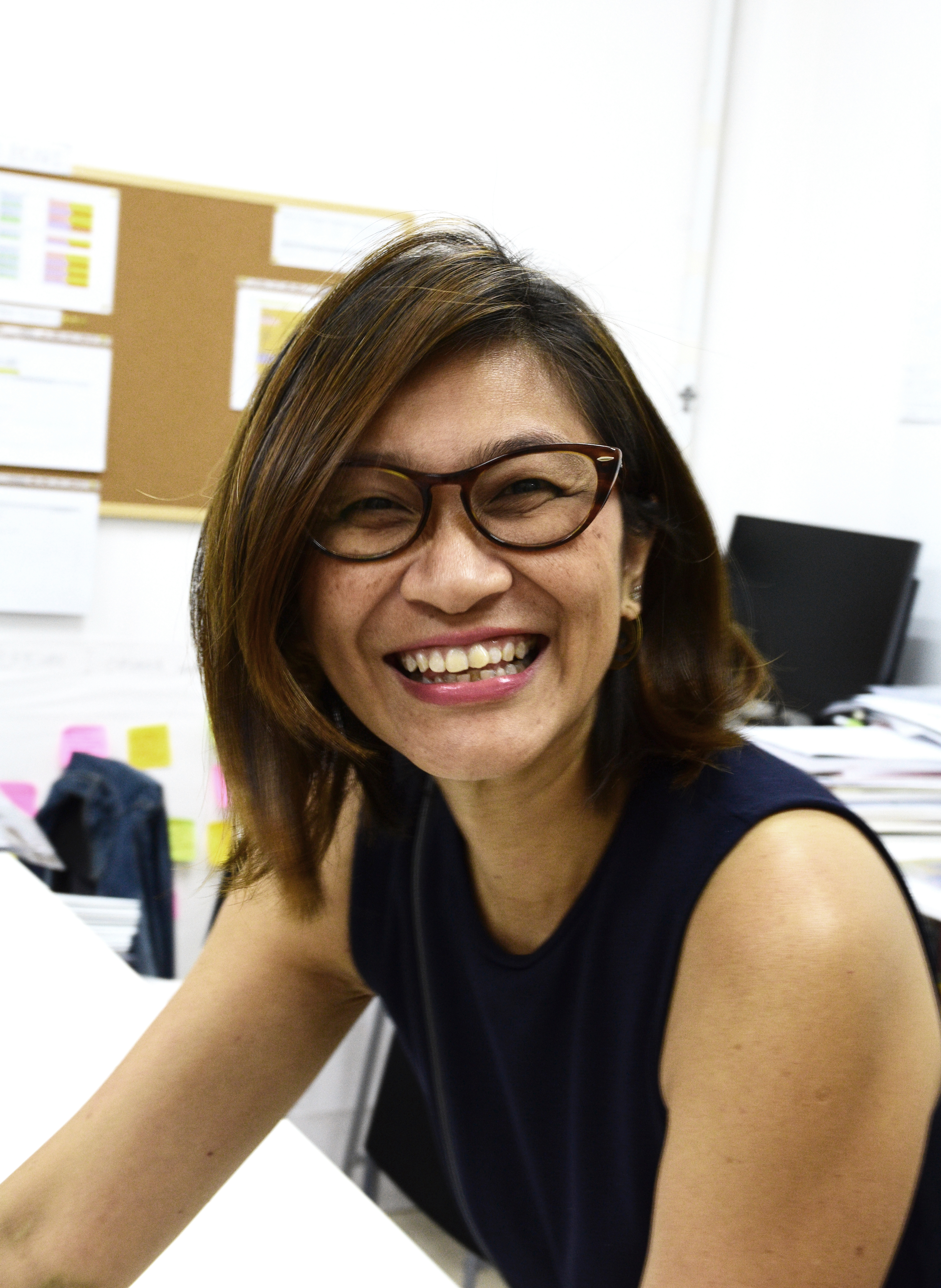Young Children’s Voices in Mathematical Problem Solving
Contributed by Dr Ho Siew Yin and Sng Wei Qin Abbie, from NTUC First Campus, for SingTeach Virtual […]
Read More
For a positive transition to occur, it is important that the child receives proper support from the people around him or her. But who are these people? In this section, one preschool teacher and primary school teacher share more about how they prepare, receive and support the child. One mother of a child with learning needs also shares her concerns and fears on the transition process.

 Head of Kindergarten 2
Head of Kindergarten 2
St. James’ Church Kindergarten
First, I would like to qualify that I am specifically referring to support in the area of social emotional development.
Usually, some signs would have surfaced consistently from the start of our contact point with them. Some may exhibit problems regulating between transitions, speaking up during discussion sessions or may be even too shy to express their needs.
We work with the parents to observe and understand better how they are at home via tele-conferencing. We allow time for them to settle into K2 from K1, especially when they find it challenging due to different expectations and a mix of new friends. I find that these children can be more independent in terms of handling their personal belongings, speaking up and getting to know new friends.
What works for me is getting to know each individual child, his or her learning style, interests, strengths and the family. The purpose is to establish a strong relationship with the child and build his or her confidence. In our daily interactions with them, we consistently use positive words associated with learning dispositions such as “keep trying” and “never give up”. This will help them know that they can teach themselves to learn new things, it is fine to make mistakes, and together we can learn to make things right.
At St. James’ Church Kindergarten, we devote one term (about nine weeks) to talk about this transition. We elicit their prior knowledge, and provoke them to share what they want to know about primary school. We engage them to contribute to their learning by having them generate solutions to manage these changes. In this way, we empower them to own their learning, build them as independent learners ready to share their voices through their thoughts and ideas.

Mother of a 5-year-old with learning needs
I have a daughter who is currently in preschool and attending the Early Intervention Programme for Infants & Children (EIPIC) three times a week, on top of her regular school hours. Diagnosed with Global Developmental Delay, EIPIC aims to equip my daughter with as much skills—both hard and soft—to allow her a better chance to catch up in school now, and if and when she enters primary school.
As a mother, I hope that she would be able to enter a regular primary school instead of one that specializes in children with learning needs. It isn’t that the latter is necessarily a bad thing—it’s just that I hope she gets the opportunity to experience formal primary education much like how her current peers in preschool eventually can.
However, I also fear that in entering primary school, my daughter will struggle to cope because of how different the setting is when compared to preschool. Will she be independent enough to go to the washroom when she needs to? Will she be able to make food purchases in the canteen during recess? But most of all, I wonder: Will her teachers outcast and categorize her as “special needs”?
I think it is important that teachers do not label children who struggle with their day-to-day work as “slow” because along with labelling comes differential treatment, which is often associated with negative treatment. Instead, what I hope is that teachers can be more patient towards all children and pay more attention to those who needs it in a subtle manner. It could be as simple as allowing the child to sit in the front row or checking in on the child once in a while during class.
I understand that the role of a teacher is not easy. As such, I also ensure there is continuity by reinforcing what my daughter learns in school at home. So I believe it is very important that both parents and teachers work together for the overall development of the child.

 Primary One Form Teacher
Primary One Form Teacher
Lakeside Primary School
Transitions and change are a constant part of life. For children with learning needs, the process becomes more challenging as they deal with complex issues associated with growing up such as self-identity and relationship-building with family, friends and teachers.
Considering that Primary One students have just transited from preschool, I ensure that I create a safe and supportive classroom environment for them. Strategies and interventions are put in place to look into each child’s physical, social and emotional well-being.
Getting adjusted to longer school hours is one of the first challenges that children face. One effective method for me and the children as we journey through this phase together is to constantly remind them of the time and events for the day. I also factor in regular toilet breaks as it helps them to get accustomed to the concept of seeking for permission by themselves.
I also try to keep my instructions short and simple to allow them better understanding. When working in groups, it is important to have a teacher to facilitate the discussion for a start as it helps develop the child’s confidence. It is crucial to maintain a small group size for these children to allow them equal opportunities to share their opinions. A conducive learning environment helps these children to feel safe which in turn, engages them and sparks their curiosity.
Most of all, a positive teacher-student relationship can help the child feel valued thus making room for a smoother transition and in turn, developing the child into a confident learner. Of course, there are different learning needs and the relevant interventions/strategies are needed. However, the general strategies mentioned above can be put in place in the classroom to make all children feel included, regardless of their abilities.
Subscribe to our newsletter to receive the latest information about our articles and events. Email us at sgteach@nie.edu.sg for assistance.
On topics related to teaching and learning, we invite you to contribute articles that focus on the following:
We welcome contributions that explore how educators are shaping the future of learning in a rapidly changing world marked by technological advancements and global challenges.
If you have a classroom or education research story to share, we invite you to send in your contribution articles.
Submit your contribution here:
SingTeach complies with the Personal Data Protection Act 2012 of Singapore
For questions, please contact the editorial team: sgteach@nie.edu.sg
